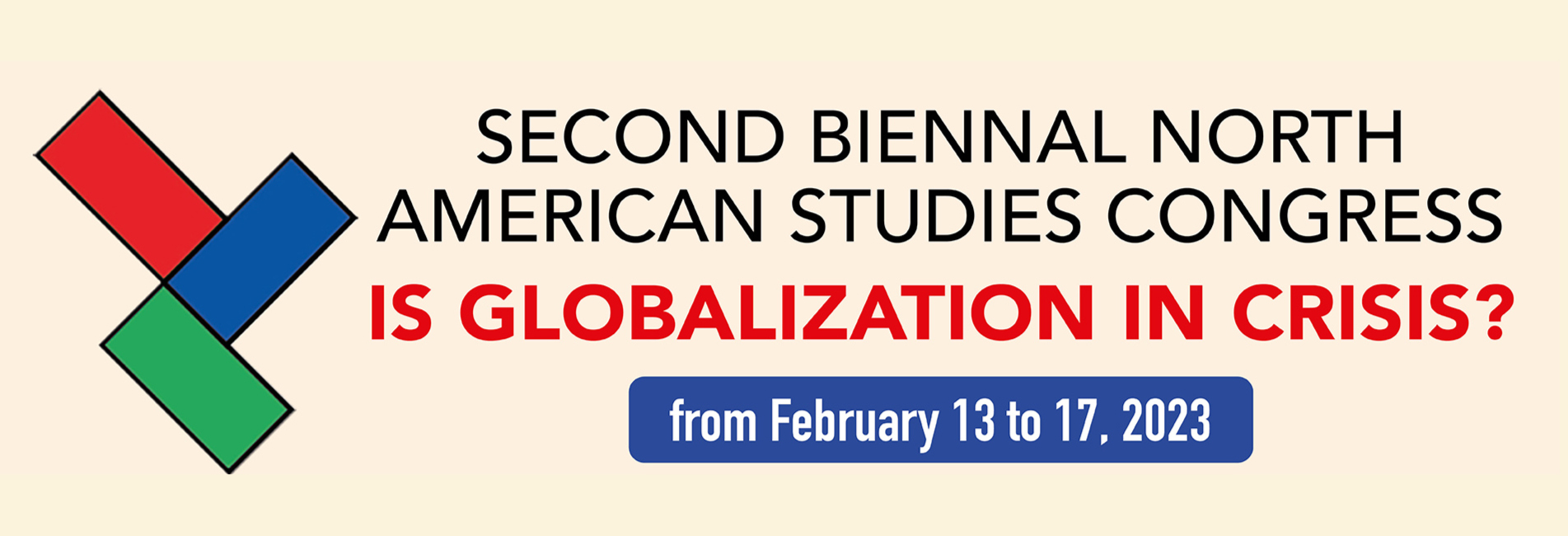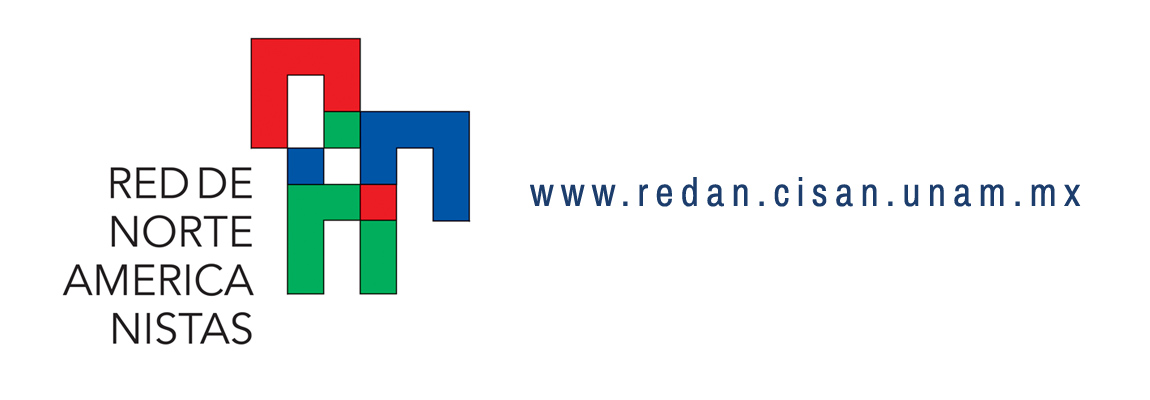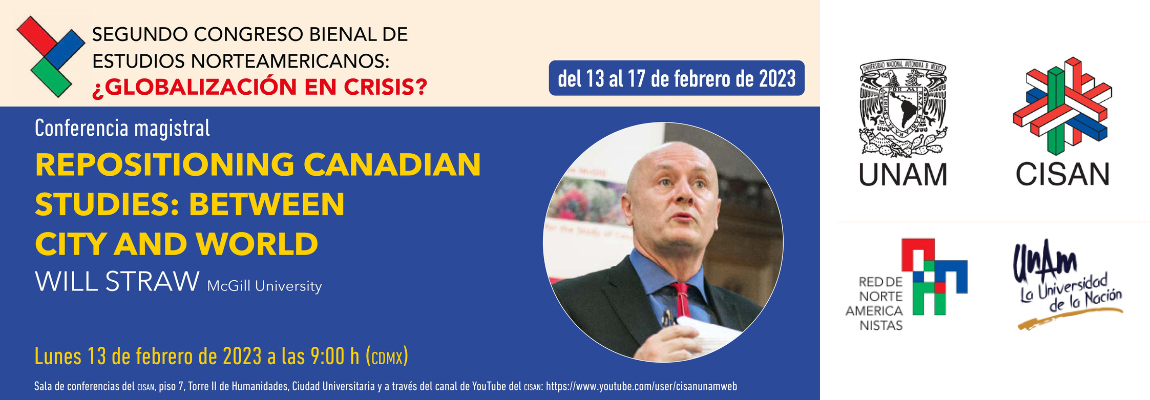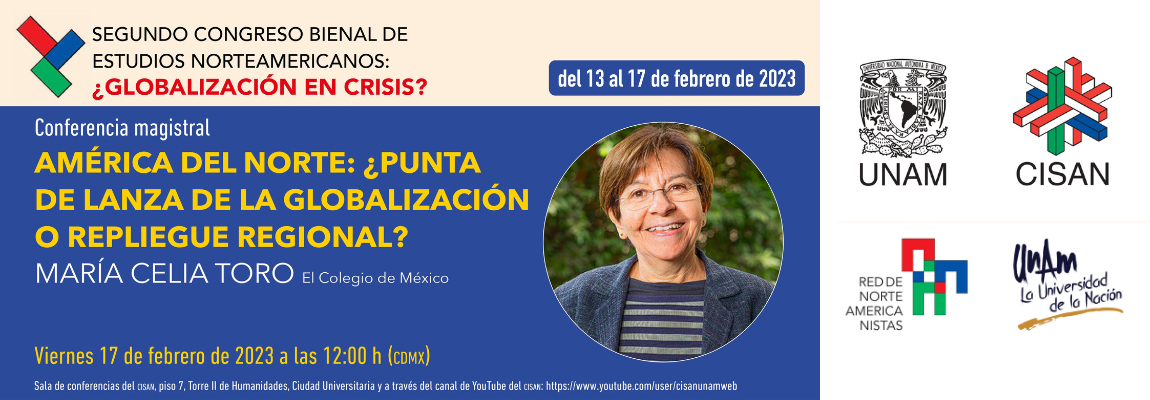Dates
from February 13 to 17, 2022
Venue
CISAN, UNAM: Torre II de Humanidades, Ciudad Universitaria, Mexico City
Modalities
In person & Online
Call For Papers
A little more than two years after the start of the Covid-19 pandemic, which has put the health systems of almost all countries and also most of the productive processes of global capitalism in check, in addition to making evident in all its dimensions the precarious social reality of the majorities, the conflict in Ukraine has been added too, a turning point that outlines a geopolitical and geostrategic reconfiguration and envisions a new international order where the poles of power of the 21st century seek to reposition themselves as preponderant actors, such as the United States, Russia, China or the European Union. We are probably at the decline stage of the post-Cold War world order, in which the market economy and liberal democracy predominated as the two main pillars' undisputed rise of the model represented by globalization.
The multiplicity of actors and their growing interdependence contrasts with the voices and processes that announce the end of globalization as we have known it up to now. The enormous challenges on a planetary scale, such as environmental problems, the possibility of escalation of open armed conflicts, the exacerbation of violence, the fragility of institutions, the growing vulnerability of all forms of life and of a large part of societies, the dizzying increase in the mobility of millions of millions of people, and the growing number of people living in the world's poorest countries, the vertiginous increase in the mobility of millions of people seeking refuge in other latitudes due to local and regional conflicts that threaten to become global conflagrations, as well as the immense challenges due to the food and health crisis, keep world peace at permanent risk and confront us with an immediate future full of uncertainty.
The three countries that make up North America are immersed in this situation, key players with their own particular interests and internal problems that complicate the integration processes by placing national security above financial and commercial interests, which leave us wondering: How does the current energy supply crisis affect each of the three countries? How will Russia's isolation by the West affect the functioning of value chains in the world economy? What role will the North American region play in the scenario of a new international order? What are the expectations in the various fields of the social sciences and humanities in the post-pandemic world?
To answer these and other questions, discuss and analyze diverse topics that encompass a wide range of approaches from a multi- and interdisciplinary perspective, the Center for research on North America (CISAN-UNAM) through the North Americanists Network (REDAN) calls for participation in our Second Biannual North American Studies Congress: Is globalization in crisis?
Objectives
- Promote the interaction among specialists in different aspects relevant to the North American region and encourage the participation of young people who are venturing into the research of new thematic lines in our field of studies in the context of post-pandemic scenarios
- Discuss about the current crisis regarding globalization and the possible directions that regional integration processes could take from a comparative perspective, taking into account the European, Asian and South American experiences, etc., to contrast them with the North American regional context.
- Analyze Mexico's relations with the United States and Canada as trade partners, in terms of cooperation, as well as recent socio-cultural manifestations in the North American region.
- Identify which are the emerging social processes and how they are manifested in the current information society, as well as the policies that prevail in the trilateral relationship within the T-MEC
- Contribute to the research, teaching and innovation agendas, as well as to the creation of new projects and lines of research for North American studies, congruent with the current situation of the post-pandemic world and facing the globalization crisis.
The thematic axes
-
1. Security and governance
Human security
Energy and environmental security
International security
Governance -
2. Economic processes, integration and development
Global value chains
Financialization
Sectoral issues
Knowledge economy and high technology -
3. Migration and borders
Refugees
Skilled migration
Return migration
Cross-border regions -
4. Cultural identities and processes
Soft power
Cultural industries
Interculturality
Popular culture -
5. Actors, structures and social processes
Native communities
Social movements
Media and networks
Local actors, global actors -
6. Political ideas and institutions
Nationalisms
Democracy and citizen participation
Political systems and counterweights
Political parties
CRITERIA FOR PARTICIPATION
We invite researchers, professors, representatives of civil society organizations, public officials, diplomats, students and other audiences interested in the related areas of our field of studies to participate in the different modalities included in this call, considering as a starting point the aforementioned lines of research within the fields of social sciences and humanities, as well as the thematic axes linked to the title of the Congress.
Individual lectures
All those interested in presenting individual lectures are invited to send an abstract of 250 words maximum, indicating the thematic axis and three key words..
Thematic dialogue tables
All those interested in proposing a thematic table are invited to send the abstracts of their lectures (between four and five papers within the same thematic axes).
Notes:
- Individual lectures may report research content at different levels of development, such as research projects, research advances or presentation of results. Theoretical papers and methodological discussions are also invited.
- Taking into consideration the official languages of the three countries that make up the North American region, papers will be received in Spanish, English and French (there will be no simultaneous translation).
- Although the congress is a mixed modality (with in person and virtual tables), all the papers of a table must follow the same modality.
IMPORTANT DATES
| Activity | Date |
|---|---|
| Registration of individual lecture and thematic dialogue tables | From May 15 to October 1, 2022 |
| Notification of accepted papers | November 15, 2022 |
| Preliminary program | December 15, 2022 |
| Payment deadline (first period) | December 16, 2022 |
| Payment deadline (second period) | January 16, 2023 |
| Payment deadline (last period) | February 13, 2023 |
| Final program | January 20, 2023 |
| Second Biannual North American Studies Congress: Is globalization in crisis? | From February 13 to 17, 2023 |
FEES
| Attendees |
|---|
| Free access
*A certificate will be issued to those who attend at least 6 tables (face-to-face, hybrid or virtual). The attendance record will be taken at the end of each table through a form. |
| Speakers |
|---|
| • First stage: From November 3 to 30, 2022 $ 1,000.00 MXN |
| • Second stage: From January 2 to 15, 2023 $1,400.00 MXN |
| • Third stage: From January 15 until the day the event begins $2,000.00 MXN Consult the information to make your payment |
| *50% discount for UNAM community and REDAN members. |
EXECUTIVE COMMITTEE

Dr. Juan Carlos Barrón Pastor

Dr. Ignacio Díaz de la Serna

Dra. Graciela Martínez-Zalce Sánchez
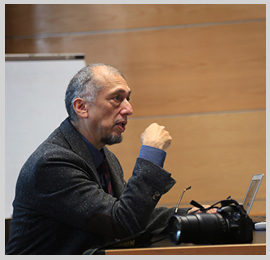
Dr. Alejandro Mercado Celis

Dr. Roberto Zepeda Martínez
Contact
Location
Pisos 1, 7, 9 y 10
Torre II de Humanidades, Ciudad Universitaria, Coyoacán, C.P. 04510, CDMX
E-mail:
Phones
55 5623 0300 al 55 5623 0309


